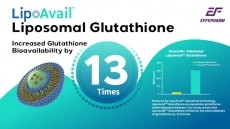Prostate tumours shrunk by lycopene, vitamin E combo
prostate cancer in mice, but had no effect when used independently,
say Dutch researchers.
The role of tomato and its extracts to protect against prostate cancer has been reported in several epidemiological studies, which lycopene supplement producers have been quick to promote. The new research, led by Professor Wytske van Weerden from Erasmus MC in Rotterdam, casts doubt on the effectiveness of lycopene by itself, and suggests a synergetic effect with vitamin E, another nutrient naturally found in tomatoes.
The study, published in the May issue of the Journal of Nutrition (Vol. 136, pp. 1287-1293), followed the effects on differing supplementation doses and combinations of lycopene and vitamin E on 54 mice inoculated with prostate cancer cells.
The mice were divided into six equal groups. The mice were fed a standard low vitamin E rodent diet, and three days after inoculation the diet was supplemented with one of the following: nothing (placebo); lycopene only (5 milligrams per kilogram of body weight (mg/kg BW) or 50 mg/kg BW); vitamin E only (5 mg/kg BW or 50 mg/kg BW); or vitamin E plus lycopene (5 mg/kg BW each).
BASF provided both nutrients: lycopene was provided as LycoVit 10 per cent, and vitamin E as alpha-tocopherol 50 per cent powder.
The researchers found that, after 95 days of supplementation, none of the single supplements, regardless of dose, had any effect on the tumour size.
"Compared with the control, the combined mixture of lycopene and vitamin E, at five mg/kg BW each, suppressed the growth of the prostate xenograft by 73 per cent at day 42," wrote lead author Jacqueline Limpens.
Consequently, the mice receiving the combined supplement also lived 40 per cent longer than the placebo group.
While the single supplements did not effect tumour size, the group receiving five mg/kg BW of lycopene did show slower tumour growth and a 19 per cent longer survival rate.
The researchers also reported that levels of the so-called prostate specific antigen (PSA), a protein that is used as a marker for the disease, tended to be lower in the combo supplement group. Plasma PSA levels were proportional to tumour size for all groups, adding support for the use of PSA as a marker of the disease.
Previous research has linked the benefits of tomatoes to the lycopene content of the fruit, conclusions that are not in-line with the results of Limpens and her colleagues.
Indeed, it appears as if lycopene and vitamin E exert a cooperative interaction to protect against prostate cancer growth. The mechanism, say the researchers, remains speculative but could be due to lower oxidative stress, altered hormone and growth factor signals, or apoptosis (programmed cell death).
"On the basis of our findings… we are currently assessing the effects of lycopene-vitamin E supplementation on rising PSA-levels in an exploratory phase II clinical prostate cancer trial," said the researchers.
According to the European School of Oncology, over half a million news cases of prostate cancer are diagnosed every year world wide, and the cancer is the direct cause of over 200,000 deaths. More worryingly, the incidence of the disease is increasing with a rise of 1.7 per cent over 15 years.













